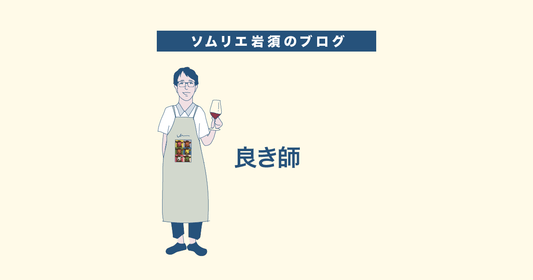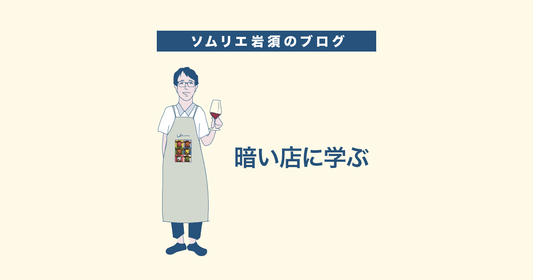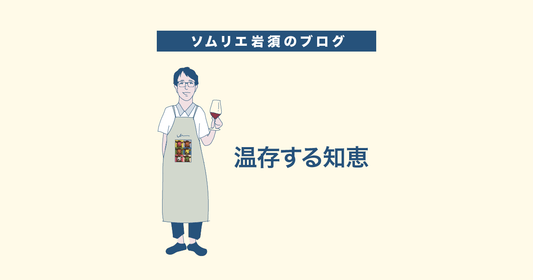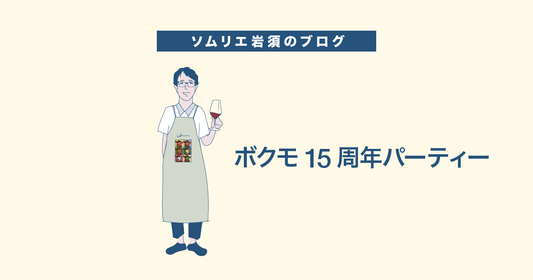
The coronavirus pandemic is tough for us restaurants. It's the same for all restaurants. We're reducing the number of seats and waiting for customers who are slow to return.
However, even among them, there are a very small number of people who say, "That store is not even shaking." Why is it not even shaking when hit by these dead balls? Is it like Yoshio Kinugasa ? There are some incredibly amazing stores.
I can imagine what kind of store is that kind of strong.
Simply put, it is a store that has its own unique ideas . It's frustrating, but it's wonderful. It's something I'm lacking in myself, so I really admire that.
The idea is very sharp and unique, and no one can match it. And that uniqueness is supported. The characteristic of a restaurant that can survive in any world is that "the restaurant has overwhelming uniqueness, and fans who believe that uniqueness is irreplaceable support the restaurant." This is Kinugasa restaurant.
Whether it's a Michelin-starred restaurant or an employee cafeteria, it is something that fans will love and value. A starred restaurant is one and only for those who love stars. An employee cafeteria is one and only for those who work at that company.
Also, even if a popular restaurant is a blatant copy of something popular in Tokyo, if the copied food has value in the area of Nagoya, it should not be rejected at all. Different locations have different consumers. If you move to a different location, gain fans there, and make it work, it's already one and only (although I wouldn't do that).
The concept of copyright doesn't apply to the restaurant world in the first place, so people copy others, new ideas are born, booms come and go, then people make a buck with the next boom. I think it's because of this vulgar side that the restaurant industry is so appealing .
On the other hand, there are also some very beautiful examples of restaurants that have become long-established by not changing their style, and that have become one-of-a-kind . Oden, yakitori, eel, udon, set meals. Long-established restaurants are so cool. I admire them. But at 44 years old, it's too hardcore to start working as an apprentice at a long-established restaurant. On the other hand, the world is too rough for me to spend the next 20 to 30 years making my restaurant a long-established restaurant.
So people like us who came into the restaurant industry late, with our dirty shoes on, have to be aware of the flow. In other words, we have no choice but to come up with new ideas and have people buy them. We have no choice but to be one-of-a-kind in a new way .
Location, what is offered, customer service, space, events, and many other elements.
For customers, these are "stores that contain nice ideas that are completely different from other stores."
I believe that is the only way for us to survive .
So, in this tough environment, we need to stop complaining and come up with lots of innovative ideas for differentiation that no one else is doing. Then, from among those, we need to examine from various angles whether they fit into the new lifestyles of the future and whether they fit into the behavioral patterns of our customers. And if we think they will work, we'll put them into action right away. I think this is extremely important right now.
but.
Although I'm lecturing like this, in reality, this "coming up with ideas" is quite difficult. Of course, I have a daily job (the working hours at a restaurant tend to be very long), and in my case, I also do radio work, so it ends up being put off. I need to make a strong effort to focus on that and secure time to come up with ideas.
So, now is the best time to do it.
Now, I write radio scripts on Wednesdays only, and I don't stand in the store. I usually write about 2-3 scripts. I just finished the first one. Okay, let's use this time between scripts to come up with ideas. Let's make it a weekly routine. Let's do that.
Then, by posting these ideas on this blog as "ideas of the week," I can organize my thoughts. From there, I can select the ideas, bring them to a staff meeting, and work on the ones that are feasible.
Maybe even if I can't make it happen, some restaurant owner who sees this will copy it. That's fine too. I honestly respect people who have the ability to execute (but please let me know if you do).
If you have one idea a week, you'll have four or five ideas a month, or 52 ideas a year. With that many ideas, you're sure to come up with something usable. No, taking a year is too slow, so you'll need to work at a faster pace.
So, without further ado, let's get started on the first week, thinking about "Idea of the Week."
However, starting from zero is difficult. I have lived a domestic life, rarely leaving Aichi Prefecture, and for the past 10 years I have mostly just gone back and forth between my shop and home. I live a very conservative life. No matter how you look at it, I lack external stimuli, so I have a low ability to generate ideas from scratch . That's why I need help to spark ideas. And that help is... books, after all .
In my room, I have about 300 books, including biographies, novels, practical books, business books, paperbacks, wine-related books, and miscellaneous books that cannot be categorized. Each book contains the thoughts of someone other than me. I am very grateful for them. It's like having 300 teachers . So, for this "Idea of the Week," I would like to create something based on what those 300 teachers have taught me.
Today, I would like to use this page from a book called "The Complete Guide to the Inspiration Switch" (Sanctuary Publishing), published about seven years ago, as a starting point.
"Turning conventional wisdom upside down"
For example, when you look up a word in a dictionary, you look it up in alphabetical order starting from the beginning. This was a concept that was so taken for granted that it was almost a law of nature, but Iwanami Shoten's "Reverse Lookup Kojien" turned that upside down.
"Rakusa" "Rakuzaki" "Rakuza is" "Rakuza bau"
When you access "Rakusa" to draw "Sakura", you can see a variety of cherry blossoms at once, including cherry blossom, yellow cherry blossom, cherry blossom with leaves, and old cherry blossom.
(Omitted)
The "Reverse Dictionary" was created because words that are related to each other can be grouped together in a list when they are arranged in reverse order, but the reason it became a hit was probably due to the shock of turning what was "common sense" upside down. I see, it's upside down. This is a way of thinking that I had never thought of before. Okay, let's turn the common sense that exists in restaurants upside down and come up with some new ideas.
"Customers receive money and eat food."
It's completely upside down. You could even say it's capitalism turned upside down.
The store provides a service and takes payment.
Personally, I feel like I've done something good with W. But it'll be gone in two weeks.
"Customers spit wine instead of drinking it."
It's the worst. Sometimes people drink a lot at other places and then do that in our toilet, I wonder what that is. If it's a souvenir, I want it to be something that makes us happy. It's just not good. I shouldn't have thought of something like this.
"Customers don't buy wine, they sell it to the store."
Hmm, this might be a possibility?
The store will buy back wine that customers no longer need. This may be a new idea.
After a little research, I found that the Liquor Tax Law has provisions for "sales licenses," but no provisions for licenses to purchase alcohol. So, even if it's legal, what should I do with the wine I buy? Should I add a little margin and sell it in my store?
Hmm. There's a bit of a problem. After all, wine is a drink that will definitely deteriorate if stored poorly. Then, what about other drinks like whiskey or shochu? These are more resistant to deterioration. But... I feel like I can't make full use of my wine-evaluating skills that I've developed up until now. But it's not a no-go. I'll put it in the reserve folder.
"The customer uncorks the wine, not the sommelier."
Oh! I've done this before.
Our business is casual, so we have a close relationship with our customers. When a group of regulars saw me uncorking a bottle, they asked me, "How do you uncork it so smoothly?" I asked them if they would like to try uncorking the next one, and I told them the important points to remember while they did it. They clapped and said, "Wow! I did it!"
It's not that difficult to extract wine (unless it's a special wine), but surprisingly not many people know the trick. And if you extract one at home, you have to drink it. So the reality is that there are few opportunities to practice.
If you could experience this rare uncorking process in a store while being taught by a professional, it might be worth it. However, it would be impossible to charge money for something like this. It might be a good idea to do this in the future as a way to increase the appeal of the store.
Well, since this is the first time, I'll leave it at that for this week. I feel like if I try too hard at the beginning, I won't be able to continue. I'll think about whether I'll continue thinking about "turning common sense upside down" next week or come up with a different topic.
By the way, if you have any interesting ideas, please let me know. Also, if you know of any good books, please let me know (contacting me via social media is the easiest way).
So here we go with "Idea of the Week," which will be updated every Thursday.
Let's become Kinugasa!!!





